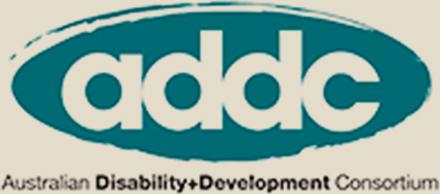Neglected Tropical Diseases (NTDs)
What We Do
Neglected Tropical Diseases (NTDs) are a group of chronic, disabling, and disfiguring diseases. There are 17 that the World Health Organisation has identified as needing attention.
Leprosy is one of them.
The impact of Neglected Tropical Diseases is huge. They tend to impact vulnerable people—usually those who are indigenous or live in extreme poverty or conflict areas. They are common in Africa, Asia and the Americas. They impair physical and cognitive development in children, complicate pregnancies, make it difficult for people to farm or earn a living, limit productivity in the workplace, and can even cause death. As a result, they can keep millions of people in a cycle of poverty.
With 400 million school-aged children throughout the developing world infected by Neglected Tropical Diseases, treatment is also the single most cost-effective way to boost school attendance, educate the next generation of workers and improve developing economies.
When we fight Neglected Tropical Diseases, the results are highly significant because treatments are generally cheap. But unfortunately, these diseases are not very visible to the developed world. Aid agencies tend to overlook them. Aid often favours the “big three”: HIV/AIDs, tuberculosis, and malaria. But Neglected Tropical Diseases cause 500,000 deaths and cost developing countries billions of dollars every year. In fact, the combined years that people lose to Neglected Tropical Disease-related illness, disability and death are the same as the combined losses of the “big three”.
People affected by these diseases are among the poorest of the world. Treating and rehabilitating those suffering from them is a global responsibility and one that all people can support.
Neglected Tropical Diseases (including leprosy) affect over 1.7 billion people globally. The Leprosy Mission, in partnership with others, seeks to ‘end the neglect’.
Ending the Neglect
NTDs, although diverse in their clinical presentation, have a singular commonality: their devastating impact on impoverished communities.
They affect the poorest, most marginalised, and voiceless communities, and disproportionately affecting children, women and people with disability.
They are treatable and preventable diseases.
The Leprosy Mission and our global partners seek to End the Neglect.
Working alongside the WHO Global NTD Roadmap
The WHO Global NTD Roadmap ‘Ending the neglect to attain the Sustainable Development Goals: a road map for neglected tropical diseases 2021–2030’ is a high-level strategic document and advocacy tool, aimed at strengthening programmatic responses to NTDs through shared goals and disease-specific targets backed by smarter investments.
It pushes for:
Stronger accountability – shifting from process to impact indicators and accelerating programmatic action to improve scientific understanding, planning and logistics, advocacy, and funding, collaboration & multisectoral action
Intensified cross-cutting approaches - integrating delivery platforms; mainstreaming with local health systems; coordinating beyond health; strengthening country capacity; mobilising regional & global resources
A change in operating model and culture – stronger country ownership, improved roles of stakeholders, clearer roles, and responsibilities to deliver on 2030 targets.
TLM are active members of:


Our NTD Projects

Nigeria
Strengthening Integrated Neglected Tropical Disease Control in Zamfara
This project aims to increase access to quality leprosy, Lymphatic Filariasis (LF) and disability services within an integrated health system for communities in Zamfara, Nigeria. Working closely with the Nigerian Government’s Department of Health to improve health services for people with leprosy and LF, train health workers, and increase access to health clinics at a local level. The project works to integrate leprosy awareness and services into existing health services and communities in Zamfara through supporting the strengthening of general health services. This is done through improving facilities and services in public health centres and hospitals to improve leprosy treatment services. Additionally, the project works to increase services provided at public health centres, such as antenatal care, mental health services, counselling. As increased community members access these services, leprosy screening is routinely provided. Additionally, the project works within communities to improve general health through the provision of clean water in water poor communities, provide assistive devices (prosthetic limbs) and conduct leprosy awareness campaigns. Working towards more inclusive communities by breaking the stigma of leprosy is also a key focus of the project. Self-Help Groups involving people with leprosy and other disabilities are supported to develop stable livelihoods and increase their confidence to become active contributing members of their communities. People with leprosy are taught to advocate for their rights and the project provides support to change processes to ensure their rights are upheld (For example: in ensuring people with leprosy can vote in the national elections).

Nigeria
Strengthening Integrated Neglected Tropical Disease Control in Zamfara
This project aims to increase access to quality leprosy, Lymphatic Filariasis (LF) and disability services within an integrated health system for communities in Zamfara, Nigeria. Working closely with the Nigerian Government’s Department of Health to improve health services for people with leprosy and LF, train health workers, and increase access to health clinics at a local level. The project works to integrate leprosy awareness and services into existing health services and communities in Zamfara through supporting the strengthening of general health services. This is done through improving facilities and services in public health centres and hospitals to improve leprosy treatment services. Additionally, the project works to increase services provided at public health centres, such as antenatal care, mental health services, counselling. As increased community members access these services, leprosy screening is routinely provided. Additionally, the project works within communities to improve general health through the provision of clean water in water poor communities, provide assistive devices (prosthetic limbs) and conduct leprosy awareness campaigns. Working towards more inclusive communities by breaking the stigma of leprosy is also a key focus of the project. Self-Help Groups involving people with leprosy and other disabilities are supported to develop stable livelihoods and increase their confidence to become active contributing members of their communities. People with leprosy are taught to advocate for their rights and the project provides support to change processes to ensure their rights are upheld (For example: in ensuring people with leprosy can vote in the national elections).

Nigeria
Strengthening Integrated Neglected Tropical Disease Control in Zamfara
This project aims to increase access to quality leprosy, Lymphatic Filariasis (LF) and disability services within an integrated health system for communities in Zamfara, Nigeria. Working closely with the Nigerian Government’s Department of Health to improve health services for people with leprosy and LF, train health workers, and increase access to health clinics at a local level. The project works to integrate leprosy awareness and services into existing health services and communities in Zamfara through supporting the strengthening of general health services. This is done through improving facilities and services in public health centres and hospitals to improve leprosy treatment services. Additionally, the project works to increase services provided at public health centres, such as antenatal care, mental health services, counselling. As increased community members access these services, leprosy screening is routinely provided. Additionally, the project works within communities to improve general health through the provision of clean water in water poor communities, provide assistive devices (prosthetic limbs) and conduct leprosy awareness campaigns. Working towards more inclusive communities by breaking the stigma of leprosy is also a key focus of the project. Self-Help Groups involving people with leprosy and other disabilities are supported to develop stable livelihoods and increase their confidence to become active contributing members of their communities. People with leprosy are taught to advocate for their rights and the project provides support to change processes to ensure their rights are upheld (For example: in ensuring people with leprosy can vote in the national elections).

Nigeria
Strengthening Integrated Neglected Tropical Disease Control in Zamfara
This project aims to increase access to quality leprosy, Lymphatic Filariasis (LF) and disability services within an integrated health system for communities in Zamfara, Nigeria. Working closely with the Nigerian Government’s Department of Health to improve health services for people with leprosy and LF, train health workers, and increase access to health clinics at a local level. The project works to integrate leprosy awareness and services into existing health services and communities in Zamfara through supporting the strengthening of general health services. This is done through improving facilities and services in public health centres and hospitals to improve leprosy treatment services. Additionally, the project works to increase services provided at public health centres, such as antenatal care, mental health services, counselling. As increased community members access these services, leprosy screening is routinely provided. Additionally, the project works within communities to improve general health through the provision of clean water in water poor communities, provide assistive devices (prosthetic limbs) and conduct leprosy awareness campaigns. Working towards more inclusive communities by breaking the stigma of leprosy is also a key focus of the project. Self-Help Groups involving people with leprosy and other disabilities are supported to develop stable livelihoods and increase their confidence to become active contributing members of their communities. People with leprosy are taught to advocate for their rights and the project provides support to change processes to ensure their rights are upheld (For example: in ensuring people with leprosy can vote in the national elections).

Nigeria
Strengthening Integrated Neglected Tropical Disease Control in Zamfara
This project aims to increase access to quality leprosy, Lymphatic Filariasis (LF) and disability services within an integrated health system for communities in Zamfara, Nigeria. Working closely with the Nigerian Government’s Department of Health to improve health services for people with leprosy and LF, train health workers, and increase access to health clinics at a local level. The project works to integrate leprosy awareness and services into existing health services and communities in Zamfara through supporting the strengthening of general health services. This is done through improving facilities and services in public health centres and hospitals to improve leprosy treatment services. Additionally, the project works to increase services provided at public health centres, such as antenatal care, mental health services, counselling. As increased community members access these services, leprosy screening is routinely provided. Additionally, the project works within communities to improve general health through the provision of clean water in water poor communities, provide assistive devices (prosthetic limbs) and conduct leprosy awareness campaigns. Working towards more inclusive communities by breaking the stigma of leprosy is also a key focus of the project. Self-Help Groups involving people with leprosy and other disabilities are supported to develop stable livelihoods and increase their confidence to become active contributing members of their communities. People with leprosy are taught to advocate for their rights and the project provides support to change processes to ensure their rights are upheld (For example: in ensuring people with leprosy can vote in the national elections).

Nigeria
Strengthening Integrated Neglected Tropical Disease Control in Zamfara KIT1
This project aims to increase access to quality leprosy, Lymphatic Filariasis (LF) and disability services within an integrated health system for communities in Zamfara, Nigeria. Working closely with the Nigerian Government’s Department of Health to improve health services for people with leprosy and LF, train health workers, and increase access to health clinics at a local level. The project works to integrate leprosy awareness and services into existing health services and communities in Zamfara through supporting the strengthening of general health services. This is done through improving facilities and services in public health centres and hospitals to improve leprosy treatment services. Additionally, the project works to increase services provided at public health centres, such as antenatal care, mental health services, counselling. As increased community members access these services, leprosy screening is routinely provided. Additionally, the project works within communities to improve general health through the provision of clean water in water poor communities, provide assistive devices (prosthetic limbs) and conduct leprosy awareness campaigns. Working towards more inclusive communities by breaking the stigma of leprosy is also a key focus of the project. Self-Help Groups involving people with leprosy and other disabilities are supported to develop stable livelihoods and increase their confidence to become active contributing members of their communities. People with leprosy are taught to advocate for their rights and the project provides support to change processes to ensure their rights are upheld (For example: in ensuring people with leprosy can vote in the national elections).




